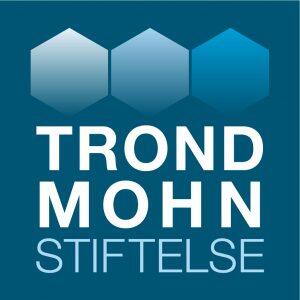Archive of projects in the Analysis and PDE group
Hovedinnhold
| Name | Period | Core members from Analysis and PDE group |
| GeoProCo: Geometry and Probability with constrains | 2021-2025 | Erlend Grong, Sylvie Vega-Molino, Francesco Ballerin |
| Methods for real-time wave forecasting and phase control of wave energy converters | 2021-2022 | Henrik Kalisch |
CODYSMA: Computational Dynamics and Stochastics on Manifolds | 2020-2025 | Hans Z. Munthe-Kaas and Jonatan Stava |
| TMS-Pure Math in Norway | 2018-2025 | UiB, UiO, NTNU and UiT |
| 2018-2024 | Didier Pilod, Martin Oen Paulsen, Torunn Stavland Jensen | |
| Megaroller | 2018-2021 | Henrik Kalisch |
| Internal Waves in the Marginal Ice Zone | 2018 | Henrik Kalisch |
Holonomy and hypoelliptic operators on sub Riemannian manifold | 2016-2019 | Erlend Grong and Irina Markina |
| CHiPS | 2015-2019 | Hans Z. Munthe-Kaas |
| Norwegian Research Network in Mathematical Models in Geophysical Flows, Image and Signal Processing, Topology and Geometry | 2015-2018 | Henrik Kalisch |
| SPIRIT | 2014-2018 | Hans Z. Munthe-Kaas |
| STREVCOMS | 2013-2017 | Irina Markina and Alexander Vasiliev |
| Nonlinear PDE in Spaces of Analytic Functions | 2012-2017 | Henrik Kalisch |
Geometry and Analysis of Complex Shapes and Applications to Mathematical Physics | 2012-2015 | Alexander Vasiliev |
Analysis and geometry on non-holonomic manifolds with nondegenerate metrics | 2011-2014 | Irina Markina |
| Scandinavian Network, Analysis and Applications | 2009-2011 | Irina Markina |
| European Network Harmonic and Complex Analysis and its Applications | 2007-2011 | Alexander Vasiliev |
| Wavemaker | 2006-2010 | Henrik Kalisch |
GeoProCo
The project period is from April 2021 to March 2025. The project is funded by the Trond Mohn Foundation and is given under the scheme TMS Starting Grant. Website
The research concerns the following topics.
Differential geometry. Differential geometry is the study of shapes. This concerns the shapes we can picture, and how we can use the intuition from those to understand the shape of higher dimensional objects that we cannot picture.
Probability theory. Probability theory is the study of random variables and probability distributions. The project will focus in particular on random variables changing with the passage of time and equations involving these.
Geometric integration. Geometric integration is focused on the study of numerical methods that preserves som underlying geometric property exactly. A way in which you can ask a computer to solve a problem without ruining the shape you are sure should be kept.
Constraints. All of the previous topics will be studied in a setting where there are nonholonomic constrains, meaning that there are restrictions on how something can move
Methods for real-time wave forecasting and phase control of wave energy converters
Bergen Universitetsfond (2021-2022).
CODYSMA
The project CODYSMA: Computational Dynamics and Stochastics on Manifolds is a five year project which started January 1st, 2020 supported by the Norwegian Research Council through the program FRIPRO. The objective of the project is to provide the mathematical community with new mathematical theories and software tools for analysis and computations on manifolds. Website
TMS-Pure Math in Norway
Funded by the Trond Mohn Foundation. The main aim of the project is to strengthen research in pure mathematics in Norway, by contributing to national and international research collaboration, mobility of researchers and Ph.D. students, and training of Ph.D and master students. It started on May 1, 2018 and would originally run for four years. It has been extended for three more years, until 30 April 2025. The Principal Coordinators are Sigmund Selberg (2018-2022) and Gunnar Fløystad (2022-2024). Website
Nonlinear Dispersive Equations
The research project "Nonlinear dispersive equations: nonlocal operators, dispersive blow-up and the soliton resolution conjecture" (NonDispEq) is founded by the Trond Mohn Stiftelse (TMS) and hosted at the Department of Mathematics of the University of Bergen. It was launched in 2018 and aims at expanding our knowledge of dynamic properties of solutions to nonlinear dispersive evolution equations arising in mathematical physics and mathematical fluid mechanics. Website
Megaroller
MegaRoller is a collaborative research and innovation project which aims to develop and demonstrate a next-generation Power Take-Off (PTO) solution for wave energy converters. Website
CHiPS
The project CHiPS - Challenges in Preservation of Structure Is a five-year project funded by MSCA-RISE.
Norwegian Research Network in Mathematical Models in Geophysical Flows, Image and Signal Processing, Topology and Geometry
(2015-2018). This project is a six-year supported by the Norwegian Research Council. The main target of the project is the increasing degree of cross-fertilization between mathematics, physics, life- and engineering- sciences with great benefits to all of them. We will obtain the crosscutting results by symbiosis of methods used separately before in different sciences. The project promotes a dialog in several related topics described in the proposal joint under the same strategic umbrella. The project is a result of discussions and activities both at the national Norwegian level and at the European level within the framework of NFR, ESF, European Commission activities.
Spirit
SPIRIT - Structure Preserving Integrators and Discrete Integrable Systems - is a four year project which supported by the Norwegian Research Council through the program FRIPRO.
STREVCOMS
Structure and evolution of complex systems with application in physics and life sciences. This is a four year project financed by the Seventh Framework Program, The People Program, International Research Staff Exchange Scheme. Grant Agreement Number: PIRSES-GA-2013-612669. The aim of the project is to make a major step-change in developing
novel effective tools for studying complex systems based on
stochastic geometry and stochastic evolution methods, on appropriate methods of analysis and combinatorics, as well as on numerical methods and computer simulations. Website.
Nonlinear PDE in Spaces of Analytic Functions
The proposed research is aimed at extending the use of function-theoretic methods in the study of nonlinear partial differential equations with a view towards applications to important problems in mathematical physics. Information about the domain of anal yticity of a solution of a PDE can be used to gain a quantitative understanding of the structure of the equation, and to obtain insight into underlying physical processes. The study of real-analytic solutions to nonlinear PDE has developed over the last t wo decades, and analytic function spaces have become popular tools for the study of a variety of questions connected with nonlinear evolutionary PDE. In particular, the use of Gevrey-type spaces has given rise to a number of important results in the study of long time dynamics of dissipative equation, such as estimating the asymptotic degrees of freedom, and approximating the global attractors. Here, we want to expand the range of these techniques and applications in the context of dissipative and dispers ive equations. The equations under study include the three-dimensional magneto-hydrodynamics system, and the nonlinear Maxwell-Dirac system. In view will also be nonlocal model equations for fluid flow, such as the Benjamin-Ono equation. In the context of magnetohydrodynamics, the proposed research will focus on the study of possible singularity formation, and scenarios to prevent such a collapse. The Maxwell-Dirac system appears in the study of quantum electrodynamics, and has recently been studied in the context of low-regularity solutions. However, results about the domain of analyticity of spatially-analytic solutions appear to be lacking. Regarding nonlocal evolution equations, our goal will be to obtain a theory of solutions in classes of analytic functions which parallels the existing theory for third-and higher order differential equations. We will also exploit analyticity of solutions in the study of the convergence of numerical approximation schemes.
Geometry and Analysis of Complex Shapes and Applications to Mathematical Physics
An important feature of the development in natural sciences during last decades is the increasing degree of cross-fertilization between mathematics and physics with great benefits to both subjects. Complex analysis and geometry recently became most relevant parts of mathematics for the study of classical and quantum field theories. An elegant description of 2D conformally invariant statistical physical systems in terms of stochastic (Schramm) Loewner contour evolution implied revolutionary progress in this direction at the beginning of XXI century. The project will focus on a progress beyond the state of arts in the study of classical and stochastic 2D non-equilibrium dynamics of complex shapes in relation with integrable systems, geometric control, non-holonomic geometry and classical complex analysis, on a mathematical description of mechanisms, which govern the deterministic and stochastic evolution of shapes, on a computer friendly description and contouring of complex shapes using the minimal resources, on comparison and distinguishing of shapes and finding geodesic motion between them in the space of shapes. Deterministic and random complex shapes will be encoded using circle diffeomorphisms and the Virasoro-Bott group (‘fingerprints’). The evolution in the space of shapes will be studied. Two sample contour evolution models are the Laplacian growth, Loewner and Loewner-Kufarev evolution and their generalizations. The ground idea of the project is that these evolutions are projections of a general evolution in the universal Sato’s Grassmannian to corresponding phase spaces. This will lead to relations to classical KdV type integrable hierarchies, to investigation of infinite dimensional constrained systems and to analysis on Lie-Fréchet groups, which proved to have an important role in classical/quantum mechanics and classical/quantum field theories. Geometric control will be developed on infinite dimensional groups. These relations will have far-reaching effect on the progress both in integrable systems and in classical complex analysis, geometry and control. Applications to the field of vision and pattern recognition will follow. More generally, topics of study are motivated by nonlinear physics and will include areas such as integrable systems, optimal control, Virasoro and Krichever-Novikov algebras, Loewner equations, and sub-Riemannian/Lorentzian geometric analysis. In other words, we shall work on a theory of constrained motion in difficult, mostly infinite dimensional, spaces.
Analysis and geometry on non-holonomic manifolds with nondegenerate metrics
This project is a four-year supported by the Norwegian Research Council.
Main goal is the study of geometry and analysis on non-holonomic manifolds whose non-integrable tangent sub-bundle is equipped with non-degenerate metric. Such kind of geometry is an abstract setting for mechanical systems (spacecraft motion, rolling, nervous systems), the underlying manifolds for mathematical physics (electro-magnetic fields, Taub-NUT space, CFT, special relativity), and the permanent interest of control theory, CR-geometry, Lie group theory and others.
Holonomy and hypoelliptic operators on sub Riemannian manifold
Awarded post-doctoral fellowship. Funding agency: FRIPRO mobility grant funded by the Norwegian Research Council and by the Marie Curie Actions’ COFUND scheme, European Research Council.
European Network Harmonic and Complex Analysis and its Applications
2007-2011 funded by European Science Foundation. The main idea of this project is to establish a fruitful cooperation between two scientific communities: analysts with a broad background in Complex and Harmonic Analysis, and Mathematical Physics, and specialists in Physics and Applied Sciences. Harmonic and Complex Analysis is a well-established area in mathematics. Over the past few years, this area has not only developed in many different directions, but has also evolved in an exciting way at several levels: the exploration of new models in mechanics and mathematical physics and applications has at the same time stimulated a variety of deep mathematical theories. The proposed ESF PESC Programme is a European networking activity aimed at promotion of scientific cooperation at the European and international levels; scientific mobility and integration of the national activities and groups with complementary backgrounds and expertise; and research training of younger scientists by doctoral scholarships and post-doctoral fellowships. Our project is a multidisciplinary programme at the crossroads of mathematics and mathematical physics, mechanics and applications, which proposes a set of co-coordinated actions for advancing in Harmonic and Complex Analysis and for increasing its application to challenging scientific problems. Particular topics which will be considered by this Programme include Conformal and Quasiconformal Mappings, Potential Theory, Banach Spaces of Analytic Functions and their applications to the problems of Fluid Mechanics, Conformal Field Theory, Hamiltonian and Lagrangian Mechanics, and Signal Processing). The Principal Coordinator is Alexander Vasiliev. Website. Book
Wavemaker
a project funded by the Research Council of Norway (2006-2010)


